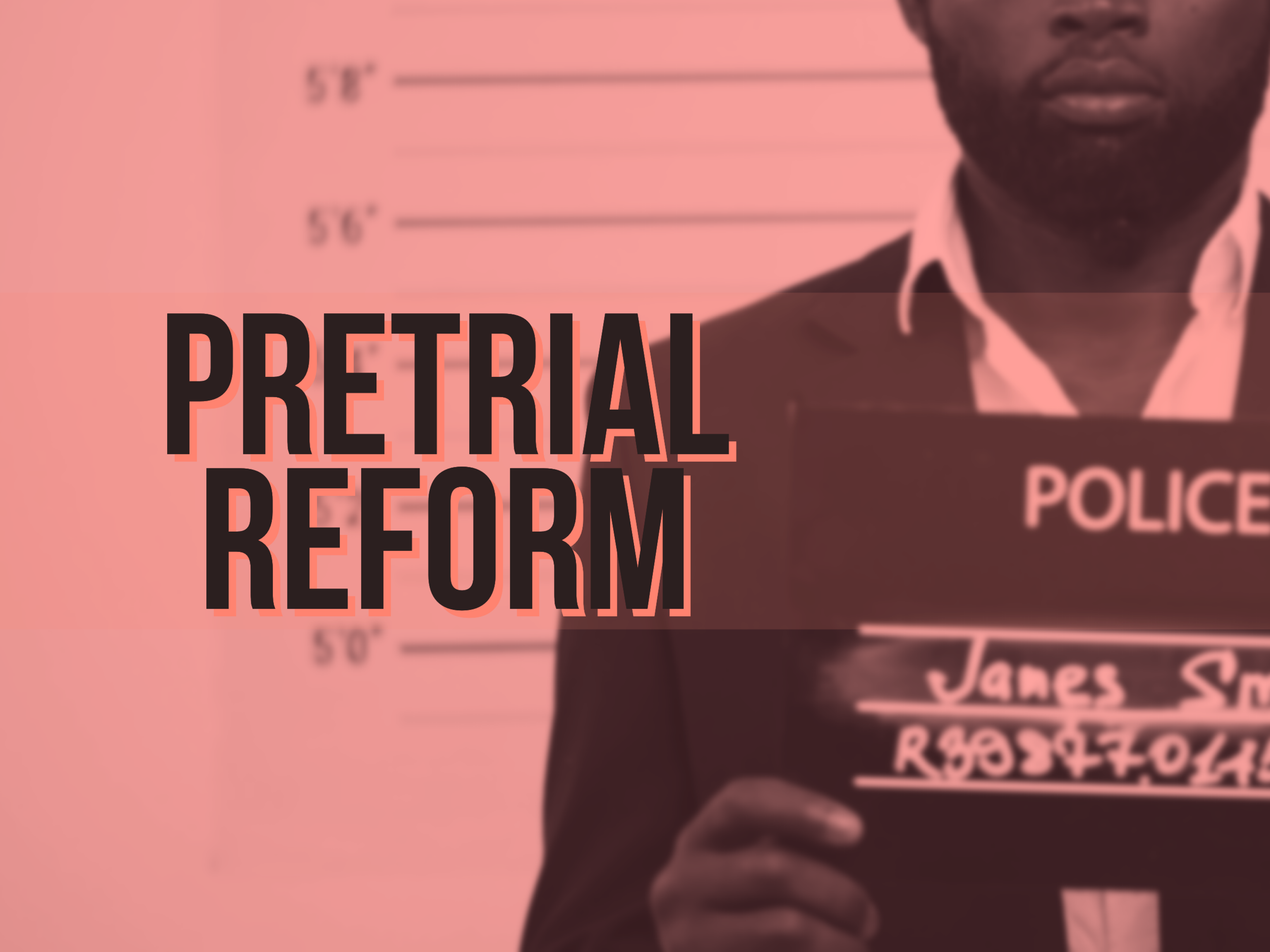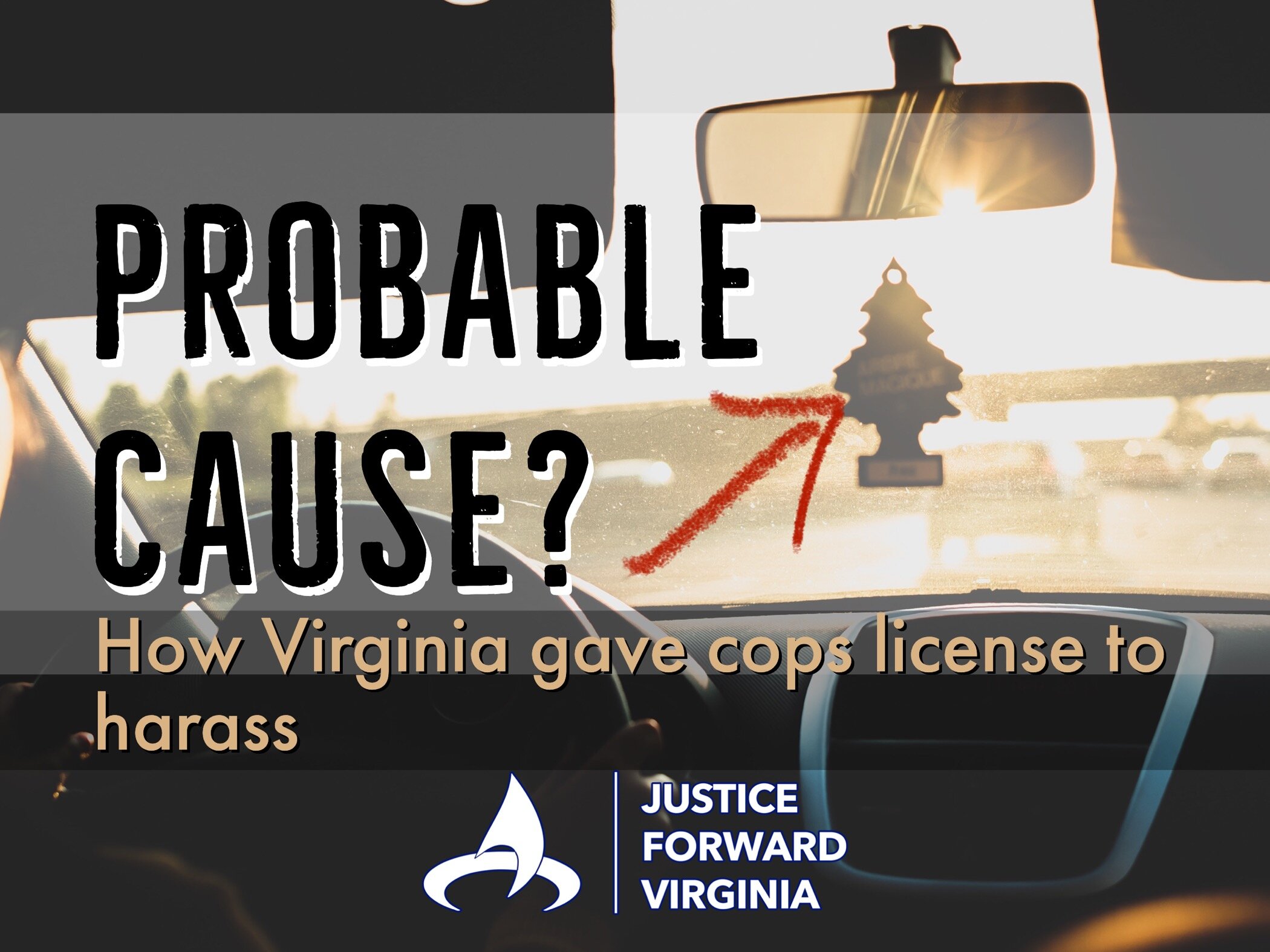Issue Successes
Justice Forward Virginia has served as the advocacy lead on many bills that have passed and been signed into law over the past few years. In many instances, we wrote the legislation ourselves We want to highlight that progress here and also note when additional work is needed to get to the end goal.
Degrees of Robbery
In Virginia, all robberies were punishable by 5 years to life in prison. This was true no matter how serious or minor the allegations: whether it involved an armed robbery that truly endangered the victims’ lives, or a simple act of bullying, such as where one teenager threatens to beat up another if he doesn’t give him his shoes. The former example is rightfully considered one of the most serious offenses an individual can commit. The latter arguably shouldn’t even have been dealt with by criminal courts.
Why the one-size-fits-all approach to a crime that spans such a wide range of behavior? It may have owed in part to the appellate courts, which had expanded the definition of robbery over time to encompass more and more acts. Combine that with the legislature’s past failures to account for the evolving definition of the crime, and you ended up with a punishment scheme that was grossly disproportionate to many of the robberies that are committed.
The potential for unjust outcomes as a result of this one-size-fits-all approach could not be overstated. First, if a person charged with robbery proceeded to a jury trial and was convicted, if they elected to be sentenced by a jury, jury sentencing laws required the jurors to impose the minimum 5 years in prison, whether they wanted to or not, and even in circumstances where a judge might not incarcerate the defendant at all. Although a judge could later suspend that jury recommendation, there is a prevailing belief among most judges that jury sentences should not be disturbed. Second, arguably the most common type of “robbery” that occurs is bullying. Although many schools, police and prosecutors sometimes use their discretion to forgo robbery charges against young people accused of bullying, many don’t. And when they don’t, a young person was suddenly faced with a host of severe consequences: a felony conviction, a felony record for life, and a lengthy prison sentence, just to name a few.
As many other states have, Virginia established degrees of robbery in 2021 that now take into account the varying degrees of the crime committed.
Probation Reform
“Mass supervision” refers to the millions of Americans who, although not in jails and prisons, remain tethered to the justice system due to community supervision such as probation and parole. With lengthy supervision, onerous restrictions, constant scrutiny, 51% of VA prison admissions were a result of parole or probation violations in 2016. Many of the people admitted to jail on probation violations committed a technical violation - an offence, such as missing a meeting with a probation officer, that is not a new crime. On July 1, 2021 a new law went into effect that bars judges from sending people back to jail for their first probation violation.
Expungement Reform: Giving People a Second Chance
In 2021 the General Assembly passed a law that makes expungement for non-convictions easier and and allows for people convicted of certain crimes to have their records expunged. The new expungement law establishes a process for the automatic expungement of criminal records for certain convictions, deferred dispositions, and acquittals and for offenses that have been nolle prossed or otherwise dismissed. The bill also provides a process for the automatic expungement of criminal records for charges arising from mistaken identity or the unauthorized use of identifying information. The bill has staggered delayed effective dates in order to develop systems for implementing the provisions of the bill. The provisions began going into effect on July 1, 2021 and will all be in effect by July 1, 2025. As introduced, this bill was a recommendation of the Virginia State Crime Commission.
Abolition of the Death Penalty
In late February 2021, the General Assembly voted to end Capital Punishment in Virginia. Virginia is the first southern state to abolish the death penalty. This was the result of decades of work from advocates and an evolution for legislators who have finally come to understand that there are too many wrongful convictions, even in death penalty cases.
Progress in Pretrial Reforms
Thousands of people who have not been convicted of a crime are in jail in Virginia while they await bail or for their cases to be resolved. A period of pretrial detention more than a day or two often upends a defendant’s life and can make it hard for them to prepare for trial. New legislation passed in 2021, including a data collection bill and a bill that ends presumptions against bail, will make pretrial detention decisions more fair.
Mandatory Jury Sentencing
Virginia’s current law allows prosecutors to force a defendant into a jury trial, which means a jury sentence, if convicted. Sentencing ranges often require juries to give a minimum sentence without any ability to suspend that sentence—a requirement that doesn’t apply to judges. Additionally, juries are not allowed to be told about or recommend alternatives to incarceration, such as probation, drug or mental health treatment, or community service. During the 2020 Special Session, this policy was changed so that defendants will be able to choose either sentencing by a judge or a jury. This change went into effect on July 1, 2021 and is being called the most impactful criminal justice reform in Virginia in generations.
Pretextual Policing
Pretextual policing is the practice of stopping someone, such as for a minor traffic violation or jaywalking, in order to investigate “hunches” unrelated to the reason for the stop for which there is no evidence. In Virginia, like many states, police nearly have carte blanche to use pretexts to act on their hunches, which has led to disproportionate harassment of Black motorists and pedestrians. JFV-led legislation that limits pretextual policing went into effect on March 1, 2021, and more will be proposed for 2022.
Community Oversight Law
The Road to Police Accountability
In Virginia, law enforcement operates under a shroud of secrecy with far less democratic accountability than our other public institutions. Civilian Oversight Bodies (sometimes referred to as Civilian Review Boards or “CRBs”) in Virginia are limited in power under current state law. Police departments are able to control the Oversight Bodies’ access to the data, evidence, witnesses, and personnel files that they need for meaningful oversight. The new law went into effect on July 1, 2021.
Police Reform - Several New Laws Went Into Effect on July 1, 2021
“Defunding” suffers from a messaging problem, but the concept is not controversial. It simply means reducing the role police and prisons serve in society while expanding services that make communities healthier, safer and more equitable.
Marijuana Legalized
For a long time, as many states took steps toward sensible drug policy, Virginia remained steadfastly committed to the war on drugs. Even after the ‘20 legislative session, when the legislature decriminalized simple possession of marijuana, police could still stop & search individuals based on the odor of marijuana, and possession of marijuana was still unlawful. In the 2020 special session, the General Assembly eliminated the “odor of marijuana” pretext, and this year it legalized possession for personal use, effective July 1, 2021.











